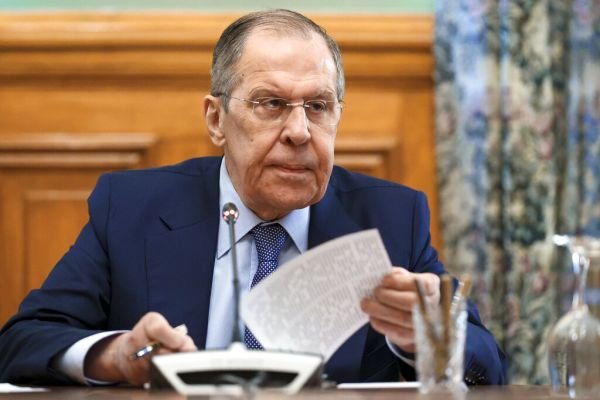Washington and Tehran pan new Moscow demand for written guarantees that its trade with Iran won’t be impacted by Western sanctions on Russia.
By Pesach Benson, United With Israel
Moscow cast new uncertainty on the Iranian nuclear talks by insisting the U.S. guarantee in writing that its trade and military cooperation with Iran not be impacted by Western sanctions on Russia.
Russian Foreign Minister Sergei Lavrov broached the linkage for the first time on Saturday, saying Western sanctions had created a “problem,” and that the nuclear agreement with Iran would have to take Moscow’s interests into account.
The demand was panned both by Washington and Iran.
“That avalanche of aggressive sanctions that have erupted from the West – and which I understand has not yet stopped – demand additional understanding by lawyers above all,” Lavrov said.
“We have asked for a written guarantee … that the current process triggered by the United States does not in any way damage our right to free and full trade, economic and investment cooperation and military-technical cooperation with the Islamic Republic.”
Recent reports have indicated that, despite the war in Ukraine and Moscow’s diplomatic isolation, the U.S. is relying on Russia to help finalize the Iranian nuclear agreement.
U.S., Iran Reject Russian Demand
It’s not clear what the Russian demand means for the nuclear agreement.
Before Russia’s invasion of Ukraine, reports indicated that an agreement appeared imminent from Vienna, where negotiators from the U.S, European Union, Russia, Britain, France, Germany, China, and Iran have been trying to hammer out a deal.
A State Department official told Reuters, “The new Russia-related sanctions are unrelated to the JCPOA and should not have any impact on its potential implementation.”
Reuters also quoted a senior Iranian official who said, “Russians had put this demand on the table (at the Vienna talks) since two days ago. There is an understanding that by changing its position in Vienna talks Russia wants to secure its interests in other places. This move is not constructive for Vienna nuclear talks.”
Israel’s primary concern with the emerging nuclear deal is that it will give Iran less than a year of breakout time. Unconfirmed reports indicate the agreement will set the amount of time Tehran needs to produce the amount of highly enriched uranium needed for a nuclear bomb to four to six months.
Washington has reportedly acknowledged to Israel that Iran is a “nuclear threshold state” in terms of uranium production and blamed former President Donald Trump’s decision to withdraw from the JCPOA for Tehran’s advances.
U.S. officials reportedly stressed to Jerusalem that failing to revive the JCPOA would leave the Iranians weeks away from accumulating the materials needed for a nuclear bomb, as opposed to months away under the terms of the current negotiations.
While uranium needs to be only 3.67 percent pure to generate nuclear power, Iran has enriched its uranium stockpile to 60%, a degree of purity that no country without an atomic weapon has pursued. A nuclear bomb requires uranium to be enriched to 90% purity.
Israel also fears that a premature lifting of sanctions will enable Tehran to boost its support for its terror proxies across the Middle East.
The controversial Joint Comprehensive Plan of Action (JCPOA) of 2015 promised Iran economic incentives in exchange for limits on its nuclear program. Former president Donald Trump withdrew the U.S. from the agreement in 2018. Negotiating a return to the nuclear agreement has long been a key foreign policy goal of U.S. President Joe Biden.
Israel, the Gulf states and Saudi Arabia oppose an American return to the JCPOA agreement.
Source: United With Israel
